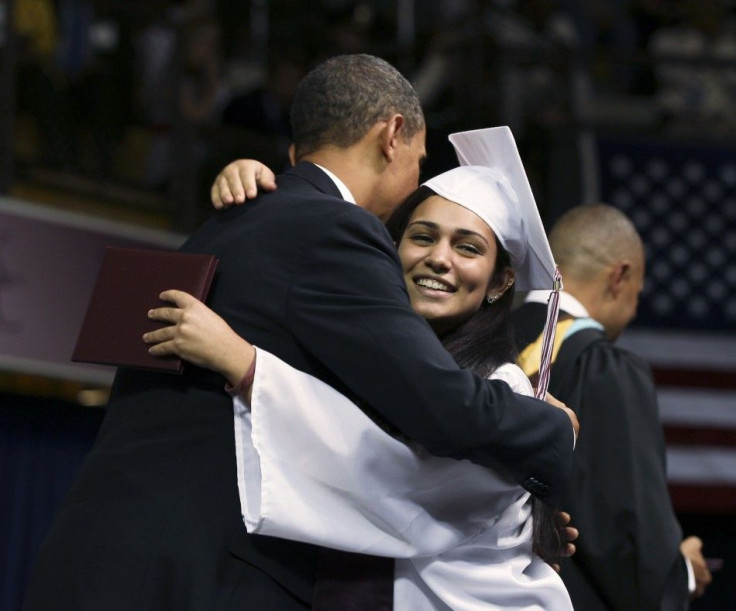Americans View College Degree as More Career-Vital for Women than Men: Survey

A college degree is seen by the public as a credential women need more than men to make it big, despite a soaring price tag, research published on Wednesday showed.
Some 77 percent of respondents in a Pew Research Center survey said it was necessary for a woman to go to college to get ahead in life, while only 68 percent said the same for men.
Among respondents on the East Coast and in liberal political circles, the importance of a college education for women was even more pronounced, the national telephone survey sponsored by Pew's Social and Demographic Trends project showed.
The Pew results, randomly gathered from landline and cell phone calls with 2,142 adults in March, come as women outpace men by significant numbers on college campuses and in graduation statistics.
Pew said women surpassed men in educational attainment in 1992, and the gap has continued to grow. In 2010, a record 36 percent of women ages 25-29 had earned a bachelor's degree while only 28 percent of their male counterparts had done the same, Pew said.
The same gender pattern was found across racial and ethnic groups, Pew said, with the widest gap within the black community.
The Pew research also revealed that women are more upbeat than men on the value of a college education.
Half of all women who have graduated from a four-year institution say it was money well spent, while just 37 percent of male graduates would agree.
Those female graduates are also more likely to say their college years helped them grow personally and intellectually.
Large majorities of both women and men said college was not affordable for most people, according to the survey. When it came to footing the bill, some 40 percent of women said their parents wrote the check to cover college expenses compared to 29 percent of men.
The margin of error on the survey was plus or minus 2.7 percentage points.
(Editing by Barbara Goldberg and Cynthia Johnston.)
© Copyright IBTimes 2024. All rights reserved.











